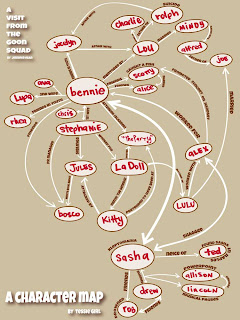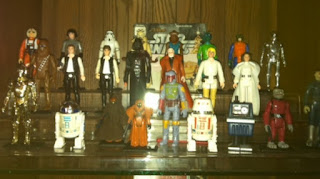On The Future of the Book
Following the lead of Joel Friedlander , I offer below my responses to the 5 keywords supplied in this interview:
#ebook—When I read the word ebook, I think ‘ibook.’ Not that digital publishing is some consequence or invention of Apple, but that it’s the engine of democracy in publishing. ‘I’ finally have control, choice and opportunity. Not only in communicating my art to an audience, but it communicating my art period; the ebook is going to allow for wonderful experimentation. The book will evolve with the form.
#future—Unknown. Will traditional publishing perish? Will it adapt and survive? Will the vehicles for e-publishing like Amazon or Apple just become another publishing house, and gate keepers of digital reading? Does the prospect of financial gain in e-publishing create a bubble that bursts in the end? I believe great works of literature will emerge through self-publishing and end once and for all the stigma against it. Will these works struggle to find readers? Will the independent community support itself?
#indie—A point of pride. At the launch party for my novel The Book of Elizabeth, my brother used the term ‘independent artist’ when introducing me. It took me off guard how proud that made me. As an ‘indie author,’ I am on my own in every way, but I am together with hundreds of other artists who have proudly stood for their own art in their own medium for decades without institutional bias against them for doing so. I stand on top of a wall that has separated writers from readers for centuries. The wall is falling.
#prices—The threshold. Is a novel at $2.99 worth less than a comic book at the same price? A DVD rental? Open question. Prices for ebooks will destroy the paperback market I think, but not books in general. Books will continue to be desired and be works in their own right. Hardcover and unique editions will probably thrive somewhat as people look to a book for its inherent value and properties. And their scarcity.
#innovation—Necessary. Traditional novels as ebooks will do just fine, but the future of this form will be defined by those that explore the boundaries of digital publishing. Do they incorporate video and sound elements, and become more like comic books? Movies? Do they become more interactive, and become more like games? Do words become decoration, as opposed to foundation? Does our language itself evolve through this process? Is the written word really the wall?
#ebook—When I read the word ebook, I think ‘ibook.’ Not that digital publishing is some consequence or invention of Apple, but that it’s the engine of democracy in publishing. ‘I’ finally have control, choice and opportunity. Not only in communicating my art to an audience, but it communicating my art period; the ebook is going to allow for wonderful experimentation. The book will evolve with the form.
#future—Unknown. Will traditional publishing perish? Will it adapt and survive? Will the vehicles for e-publishing like Amazon or Apple just become another publishing house, and gate keepers of digital reading? Does the prospect of financial gain in e-publishing create a bubble that bursts in the end? I believe great works of literature will emerge through self-publishing and end once and for all the stigma against it. Will these works struggle to find readers? Will the independent community support itself?
#indie—A point of pride. At the launch party for my novel The Book of Elizabeth, my brother used the term ‘independent artist’ when introducing me. It took me off guard how proud that made me. As an ‘indie author,’ I am on my own in every way, but I am together with hundreds of other artists who have proudly stood for their own art in their own medium for decades without institutional bias against them for doing so. I stand on top of a wall that has separated writers from readers for centuries. The wall is falling.
#prices—The threshold. Is a novel at $2.99 worth less than a comic book at the same price? A DVD rental? Open question. Prices for ebooks will destroy the paperback market I think, but not books in general. Books will continue to be desired and be works in their own right. Hardcover and unique editions will probably thrive somewhat as people look to a book for its inherent value and properties. And their scarcity.
#innovation—Necessary. Traditional novels as ebooks will do just fine, but the future of this form will be defined by those that explore the boundaries of digital publishing. Do they incorporate video and sound elements, and become more like comic books? Movies? Do they become more interactive, and become more like games? Do words become decoration, as opposed to foundation? Does our language itself evolve through this process? Is the written word really the wall?


Comments